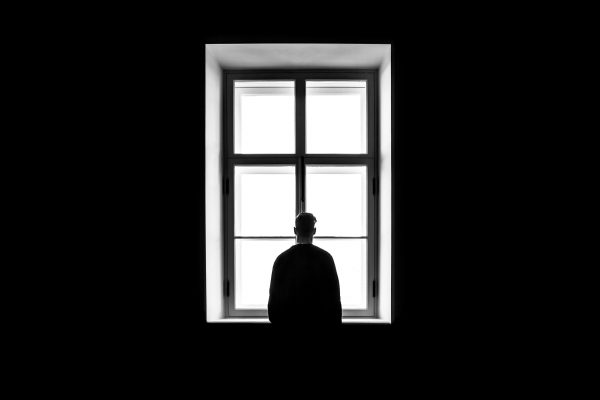6,859 people committed suicide in 2018 in Britain. Suicide is the biggest killer of young people (aged 16-24). About three-quarters of suicides are by males. However, women are more likely to attempt suicide than men, but men tend to use more violent means. This is a problem that affects all of us, men and women, and – as much as we may deny – Muslim and non.
6,859 people committed suicide in 2018 in Britain. Suicide is the biggest killer of young people (aged 16-24). About three-quarters of suicides are by males. However, women are more likely to attempt suicide than men, but men tend to use more violent means. This is a problem that affects all of us, men and women, and – as much as we may deny – Muslim and non.
People are committing suicide. People are suffering from mental illnesses and chronic illnesses. People deserve better support.
Muslims are committing suicide. Muslims are suffering from mental illnesses and chronic illnesses. Muslims deserve better support.
The tragedy of suicide can hardly be understated. Every single person has the potential to bloom into a magnificent human being and bring light to those around them. Every single person has a network of friends, families, and confidants, devastated by their loss, and damned to intense stigma, feelings of guilt, and self-blame. The cruel culling of their life and the loss we all incur from being denied their light is utterly decisive. It can never be undone.
The scale of suicide is severe and worsening. 6,859 people committed suicide in 2018 in Britain. Suicide is the biggest killer of young people (aged 16-24). About three-quarters of suicides are by males. However, women are more likely to attempt suicide than men, but men tend to use more violent means. This is a problem that affects all of us, men and women, and – as much as we may deny – Muslim and non.
Muslims are committing suicide
The Muslim Youth Helpline (MYH) conducted a survey in 2018 on British Muslim youth and their mental health. 32% of respondents had suffered from suicidal thoughts. 63% had suffered from anxiety, and 52% from depression. Yet despite these alarming statistics, 40% of respondents said that they did not feel they had easy access to relevant support.
There is a substantial stigma around suicide in communities that are far more aware of mental health. In parts of the Muslim community, where we still have not properly acknowledged (let alone addressed) mental health, this stigma is paralysingly higher, to the point that suicide is barely discussed.
Yet, as MYH’s research shows, and conversation with many mental health practitioners, Muslims are committing suicide. Family and friends feel obliged to lie about the cause of death to the wider community to protect the honour of their loved one.
Is it not an unspeakable injustice that we try to protect the honour of our loved ones when they are dead, rather than providing them with loving, professional and personal support whilst they are alive? Suicide is the culmination of extreme suffering and emotional distress – intervention at the right stages can certainly reduce the risk of suicide considerably. Knowing this, how is it that 40% of the MYH’s survey respondents said that they do not have easy access to support? Is this not a calamitous failure on our part? As Muslims, should we not be foremost in responding to this problem?
Muslims should be foremost in responding to suicide trends
The scale of suicide should bring particular alarm to us as Muslims. As believers, death holds an especially significant meaning for us – and this should spur us to be the most passionate of campaigners for better mental health.
Death is the end of all things, and the passage into the realm of accountability, the Day of Judgement, the Day in which our every action will be judged and our fate be determined. Thus, the news of the suicide of any human being should bring great sadness upon us as Muslims, because, by our Lord’s Mercy, we have been informed of what is to come.
Yet, our response (or lack thereof) is significantly lacking. We have all but forgotten the beautiful way in which God and His Messenger (peace be upon him) responded to emotional suffering.
How God and His Messenger responded to emotional suffering
Surah Kawthar was revealed when the Prophet (peace be upon him) was in intense emotional distress. His people had turned against him, he faced boycott, abuse and violence. He had but a small group of companions and success seemed nigh impossible. During this time, one of the Prophet’s sons died at an early age, the worst nightmare for any parent. May we all outlive our parents, amen. His vile enemies took this as an opportunity to mock him, calling him ‘cut off’ because of his lack of male progeny.
Under this unbelievable burden, God, Most High, consoled and cheered up the Prophet:
“We have truly given abundance to you [Prophet]…” – Surah Kawthar, Verse 1.
The eloquence of this verse in Arabic is staggering; it contains several emphatic layers of intensity to stress in the strongest possible terms, that God Himself has given the Prophet so very much. Notice, there are no statements here such as ‘Believers don’t get depressed’ or ‘just be grateful’. Rather, God, Exalted is He, speaks in powerful words of reassurance and love.
It is an ode to the Prophet (peace be upon him) that despite all of his suffering and hardships, he remained beautifully loving, soft and warm. On one occasion, a young man who was feeling depressed said to Prophet that he did not want to live any more. And the Prophet replied in his quintessential authoritative compassion; ‘would you really wish for death while I am still among you all?’. One of the greatest conceivable blessings is the physical presence of the Prophet (peace be upon him), and here we see a young man wanting to kill himself. Yet, we see no harshness from the Prophet (peace be upon him), no statements like ‘man up’ or ‘be grateful’, and certainly no gaslighting. The Prophet (peace be upon him) heard him, saw his suffering, and reminded him of his blessings with beautiful compassion and empathy.
Sadly, compassion and empathy are very much absent in our narratives and discourse. But we can change that.
What you can do
Bring light to your corner of the universe. We can complain endlessly about collective narratives and discourses, but every single one of us can make a difference to those around us.
Suicide is the culmination of extreme distress and dissatisfaction. You may know somebody who is suffering from mental or chronic illnesses but may not be suicidal. Supporting them now is essential, rather than leaving matters to get worse. If you know somebody who has a mental illness, or is generally having a hard time, reach out to them. Send them a loving message, even if it is just to say that I see you and recognise you. Mental illness can be a very lonely place. Check in on them, offer to lend an ear, take them out for a meal. It doesn’t matter what you do, so long as you provide presence, acceptance and unconditional love. Without exaggeration, this can save lives.
Brothers, a particular note to all of us. To be completely honest, we are absolutely terrible at supporting each other. This isn’t a colloquial opinion; it is well established in academic literature as one of the reasons why three-quarters of suicides are by men. Men, mental health, and suicide is a much bigger topic and deserves separate treatment. For now, I will say this much; our beliefs about masculinity, attitudes toward emotion, and not wanting to ask for help is killing men. Men are taking their lives with their own hands. What greater cause for change could there be?
If you are having suicidal thoughts
Wallahi, you are beloved to God.
Wallahi, you are so valuable, not because of your achievements, looks or anything else, but because God Himself has honoured you:
“We have honoured the children of Adam and carried them by land and sea; We have provided good sustenance for them and favoured them specially above many of those We have created.” – Surah Al-Isra, Verse 70.
Wallahi, Jannah awaits you:
“We shall certainly test you with fear and hunger, and loss of property, lives, and crops. But [Prophet], give good news to those who are steadfast, those who say, when afflicted with a calamity, ‘We belong to God and to Him we shall return.’ These will be given blessings and mercy from their Lord, and it is they who are rightly guided.” – Surah Baqarah, Verses 155-157.
You are not alone. There is help and support available to you, at every hour of every day; you can call Samaritans at any time of the day on 116 123. Please look after yourself, and reach out for support.
An oath to change
Humans deserve better than to writhe in emotional agony. We must do better. We must swear an oath to change. An oath where we swear to better ourselves and our own mental health, and an oath to provide unconditional love and support to those around us. Just ponder over how much of a tragedy suicide is, and the courage to change will be lit ablaze within us all.





